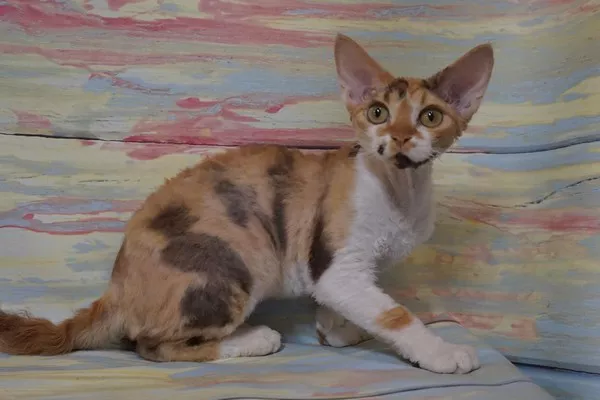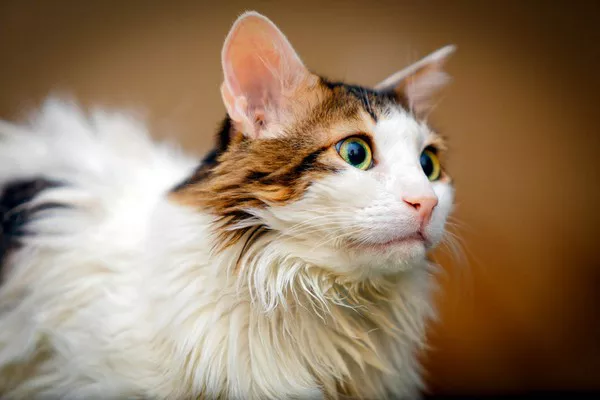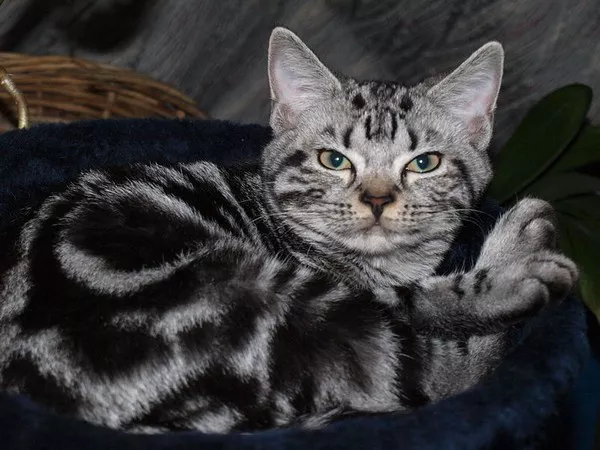The Devon Rex, with its elfin features and wavy coat, is one of the most distinctive cat breeds. Known for their playful, energetic, and friendly nature, these cats are also distinguished by their unique dietary needs and metabolic characteristics. This comprehensive guide will explore the optimal weight for a female Devon Rex cat and provide detailed feeding tips to maintain their health and well-being.
Understanding the Devon Rex Breed
Before delving into the specifics of weight and diet, it’s important to understand the unique attributes of the Devon Rex breed. These cats are known for their slender bodies, large ears, and expressive eyes, all of which contribute to their distinctive appearance.
Physical Characteristics
Body Structure: The Devon Rex has a slender, muscular body with a fine bone structure. Their appearance is often described as being both elegant and whimsical due to their curly coat and large, low-set ears.
Coat and Grooming: Their short, wavy coat is one of the breed’s defining features and requires less grooming than many other cat breeds.
Behavioral Traits
Activity Level: Devon Rex cats are highly energetic and playful. They are known for their high jumps and agile movements.
Social Behavior: They are extremely friendly and enjoy being close to their human companions, often described as “puppy-like” in their affectionate behavior.
Ideal Weight for Female Devon Rex Cats
1. Weight Range
General Guidelines: The ideal weight for a female Devon Rex typically ranges from 5 to 9 pounds (2.3 to 4.1 kg). This range ensures they are neither underweight nor overweight, promoting a healthy lifestyle and reducing the risk of various health issues.
Individual Variability: It’s important to note that the ideal weight can vary based on the cat’s age, activity level, and overall health. Regular check-ups with a veterinarian can help determine if your cat is maintaining an optimal weight.
2. Monitoring Weight
Regular Weigh-Ins: Monitoring your cat’s weight can be done at home using a small digital scale. Regular monthly checks can help track any significant weight changes.
Veterinary Assessments: Annual veterinary check-ups are crucial as they allow for professional assessments of your cat’s health, including weight and body condition scoring.
Feeding Your Devon Rex: Nutritional Needs
1. Understanding Nutritional Requirements
Protein: As carnivores, Devon Rex cats require a diet high in animal protein. This supports muscle maintenance and overall health.
Fats: Essential fatty acids are necessary for maintaining their energy levels as well as supporting skin and coat health.
Carbohydrates: While not a primary requirement, carbohydrates from vegetables and grains can provide necessary fiber and energy.
2. Choosing the Right Food
Commercial Cat Food: Select high-quality commercial foods that are appropriate for the cat’s age, size, and activity level. Foods specifically formulated for active breeds or indoor cats can be beneficial.
Wet vs. Dry Food: Both wet and dry foods have their benefits. Wet food can help increase water intake, while dry food can be beneficial for dental health. A combination of both can be a balanced approach.
Feeding Practices: How Much and How Often?
1. Measuring Food Intake
Portion Control: It is crucial to measure your cat’s food using a standard measuring cup and follow the feeding guidelines provided on the food packaging or advised by your vet.
Frequency of Feeding: Adult Devon Rex cats typically do well with two meals per day. Kittens, however, may require more frequent feeding to support their growth and development.
2. Special Dietary Considerations
Age-Specific Diets: Kittens, adults, and senior cats have different nutritional needs. For example, kittens require diets higher in calories and nutrients that support growth, while seniors need fewer calories to prevent obesity.
Health-Specific Diets: For cats with health issues such as kidney disease or diabetes, special therapeutic diets may be necessary.
Tips for Healthy Feeding
1. Avoiding Overfeeding
Treats: Treats should not constitute more than 10% of a cat’s total daily calorie intake to avoid weight gain.
Monitoring Body Condition: Regularly assess your cat’s body condition. You should be able to feel her ribs but not see them. There should be a noticeable waist when viewed from above.
2. Enhancing Mealtime
Interactive Feeding: Use puzzle feeders to make mealtime more engaging and to stimulate your cat’s mind.
Routine: Establishing a consistent feeding routine helps regulate a cat’s digestive system and reinforces healthy eating habits.
Conclusion
Maintaining the optimal weight for a female Devon Rex involves understanding the breed’s unique physical and behavioral traits, adhering to proper feeding guidelines, and regularly monitoring their health. A balanced diet tailored to their specific life stage, activity level, and health needs, combined with regular veterinary care, will ensure your Devon Rex leads a healthy and joyful life. Engaging feeding practices not only meet nutritional needs but also enhance your bond with your pet, making mealtime a rewarding experience for both of you.
Further Reading and Resources
For additional information on the care and feeding of Devon Rex cats, resources such as breed-specific books, reputable websites, and advice from veterinarians specializing in feline medicine can be invaluable. Organizations like The International Cat Association (TICA) and the Cat Fanciers’ Association (CFA) also offer insights and guidelines pertinent to the breed.



























